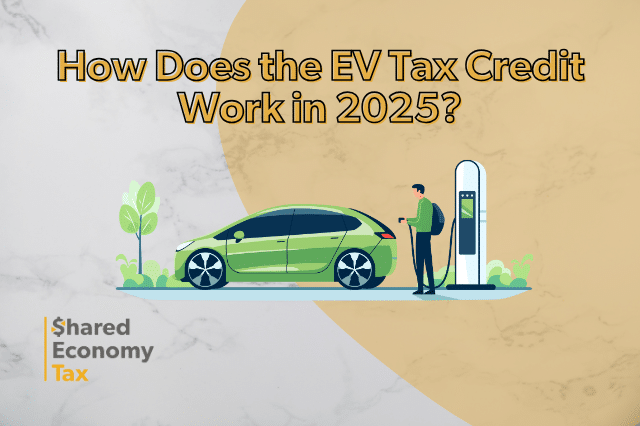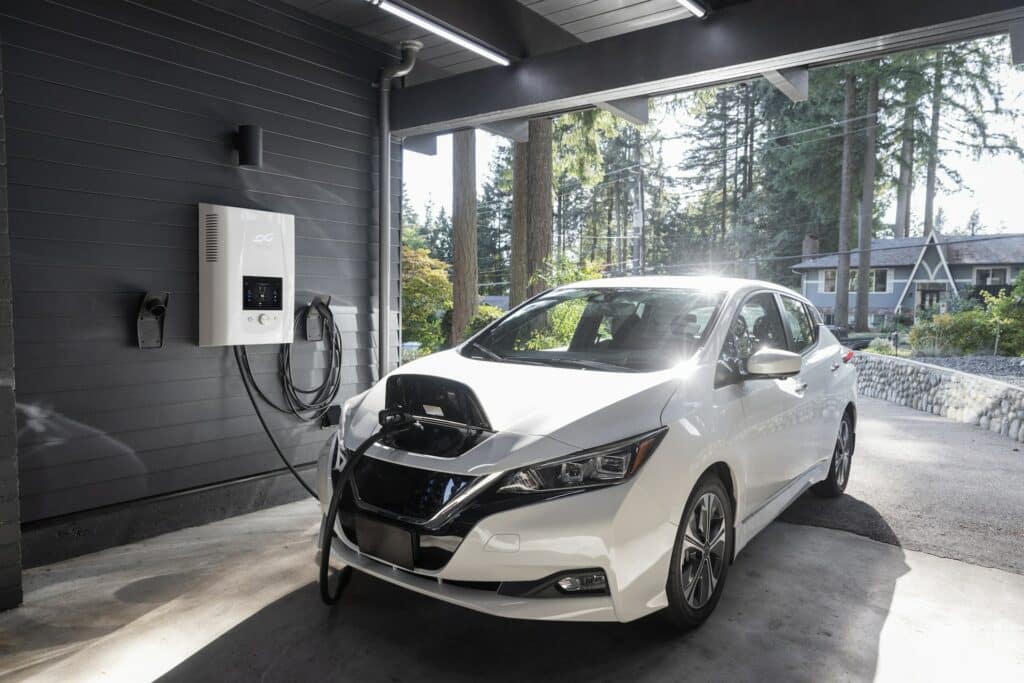
Buying an electric vehicle (EV) is still one of the most effective ways to reduce your carbon footprint—and thanks to updated federal tax incentives, it may also come with a substantial financial benefit. If you’re thinking about buying a new or used EV in 2025, now’s the time to get clear on the rules.
Thanks to the Inflation Reduction Act (IRA), the EV tax credit has been revamped and extended through 2032, but the eligibility criteria have gotten a lot more complex. That means not every EV qualifies, and not every buyer will benefit.
In this article, we’ll break down how the EV tax credit works in 2025, what’s changed since previous years, which vehicles qualify, and how to know if you’re eligible.
What Is the EV Tax Credit?
The federal EV tax credit is an incentive offered by the IRS to encourage more people to purchase electric or plug-in hybrid vehicles. The full credit is worth up to $7,500 for new EVs and $4,000 for used EVs—but qualifying for the full amount depends on your income, the vehicle’s price and battery, where the car was assembled, and where the battery components were sourced.
The IRS breaks the credit into two parts:
- $3,750 if the vehicle meets the critical mineral sourcing requirement.
- $3,750 if it meets the battery component sourcing requirement.
You only get the full $7,500 if the vehicle meets both criteria. For even more tax savings, you can pair this credit with Section 179 for vehicles.
Combining the EV Credit with Section 179
If you’re buying an EV for business use, there may be an opportunity to combine the EV tax credit with Section 179 depreciation for even greater tax savings—but there are caveats. The IRS does not allow you to depreciate the same value already covered by a tax credit. So, if you claim the $7,500 EV credit on a qualifying business vehicle, your depreciable basis will be reduced by that amount.
However, the remaining vehicle cost can still be eligible for Section 179 treatment or bonus depreciation, provided the vehicle meets all the usual requirements. To maximize your deduction, consider vehicles that qualify for the EV credit but also weigh enough or serve a function that allows full Section 179 treatment. Work with a tax professional to structure the purchase properly, confirm documentation, and determine the most efficient way to split the credit and depreciation for optimal savings.
New Rules for 2025
Here are the latest rules to be aware of this year.
Point-of-Sale Transfer Is Now Active
One of the biggest changes for 2025: You can now apply the EV tax credit directly at the dealership when you buy the vehicle. That means you don’t have to wait until tax season to benefit—you can reduce your upfront cost immediately.
To do this, the dealership must be registered with the IRS and transfer the credit on your behalf at the time of sale. You’ll still need to meet all eligibility requirements, and you’ll report the purchase on your tax return later to reconcile it.
Stricter Battery Sourcing Rules
The critical minerals and battery components must be sourced from the U.S. or countries with which the U.S. has free trade agreements. Vehicles with components from “foreign entities of concern” (like China) are ineligible for the credit. This rule became stricter in 2024 and continues to impact which vehicles qualify in 2025.
As a result, many popular EV models no longer qualify for the full credit—or any credit at all.
Used EV Credit Continues
If you’re in the market for a pre-owned EV, you’re in luck. Used EVs still qualify for a credit of up to $4,000 (or 30% of the purchase price, whichever is less). But the vehicle must be at least two years old, cost less than $25,000, and be purchased from a dealer.
Used EV credits are also income-restricted and only available once every three years per taxpayer.

Income & Price Limits (Still in Effect)
To qualify for the EV tax credit, your modified adjusted gross income (MAGI) must fall below the following thresholds:
- $150,000 for single filers
- $225,000 for heads of household
- $300,000 for joint filers
If your income exceeds those limits, you can’t claim the credit—even if the vehicle itself qualifies.
Vehicle price caps also apply:
- $80,000 for vans, SUVs, and pickup trucks
- $55,000 for sedans and other passenger vehicles
- $25,000 for used vehicles (purchase price)
These caps are based on the manufacturer’s suggested retail price (MSRP)—not what you actually pay.
How to Check If a Vehicle Qualifies
Because the rules now depend on both assembly location and battery sourcing, vehicle eligibility must be confirmed on a case-by-case basis.
Start by visiting the IRS’s Clean Vehicle Credit list to check eligibility by make and model. You’ll also need the vehicle identification number (VIN) to confirm North American assembly.
Even vehicles from top EV makers like Tesla, Ford, and GM may not qualify in full—some only receive partial credits, and others are excluded entirely due to battery sourcing.

Additional EV Credit Options
You could also take advantage of the EV credit with these purchases:
Commercial EVs
Businesses purchasing EVs for commercial use may still qualify for a separate clean vehicle tax credit, with no income or price caps. This credit is available to companies buying qualified commercial clean vehicles and is typically calculated as 30% of the purchase price (or the difference between a gas model and EV model of the same type), capped at $7,500.
EV Charger Tax Credit
Homeowners installing EV charging stations can still claim a tax credit of up to 30% of the cost, capped at $1,000 for residential installations. However, the credit is now limited to installations in low-income or rural communities, so eligibility depends on your location.
Is the EV Credit Worth It in 2025?
The EV tax credit can still provide a significant financial benefit—but it’s no longer a guarantee. Many vehicles don’t meet the stricter battery sourcing requirements, and income and price caps exclude many taxpayers.
That said, if you do qualify, the point-of-sale option makes 2025 one of the best years yet to take advantage of the incentive without waiting for tax season.
It’s also worth noting that several states still offer additional local EV rebates or credits, so check with your state or utility provider for stacking opportunities.
Closing Thoughts on EV Tax Credits
EV tax rules have changed dramatically in recent years—and 2025 brings a mix of stricter rules and more flexible claiming options. If you’re in the market for an electric or plug-in hybrid vehicle, the updated credit may still be within reach, but careful research is key.
At Shared Economy Tax, our team of tax experts can help you navigate the fine print and ensure you get the full credit you deserve. We specialize in helping independent professionals and small business owners optimize their tax strategies, from EV credits to depreciation planning. Get started now by booking a 1-on-1 strategy session, and see how much you save.